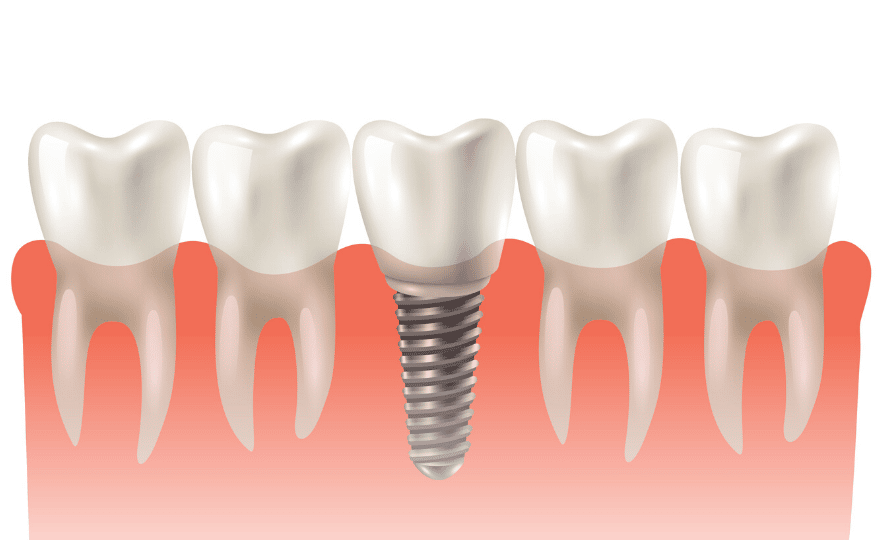What are dental implants?
A dental implant consists of a root that is implanted into the jawbone, and a crown that resembles your natural teeth is fitted on top of it. Dental implants are a part of restorative dentistry and are known to be the most effective way to replace a missing tooth.
Who should get dental implants?
Dental implants are appropriate for people with the following conditions:
- Missing tooth/teeth
- Badly affected or infected tooth/teeth that may get decayed
- A broken, fractured or injured tooth.
Is it feasible for a toothless person to get dental implants?
You’d think that choosing to get 32 teeth implanted instead of getting dentures makes no sense. And you’re right! That is why they have all-on-4 dental implants. All on 4 dental implants require 4 implants that restore all the teeth on either jaw. All-on-4 dental implants are surely more effective than dentures and do make sense!
Can lack of jawbone still support dental implants?
Yes! This type of implant is called a subperiosteal implant. A subperiosteal dental implant requires a metal framework to be placed underneath the gumline. This metal framework has attachments to it that connect to the root that is placed on top of it. The metal framework merely acts like the jawbone that is required to support the implant.
Another option for a patient who has lost too much bone for a dental implant is bone graft.
How many visits are required for a dental implant?
Generally, if you do not need bone grafting, it takes only three visits for a single implant- the first visit for the consultation, the second for the procedure, and the third for a check-up. However, if you do need a bone graft, this may vary. The entire process may span from anywhere between 5 months to even a year.
How long do dental implants last?
With proper care, dental implants can last a lifetime! Chances are that a dental implant is the last tooth you’d ever lose. This is because they are highly biocompatible and fuse impeccably with the jawbone.
Do insurances cover dental implants?
Most dental insurance companies do not cover dental implants. However, the number of companies that do cover dental implants is increasing.
To know how you can find an insurance company that does cover dental implants, read this article by Colgate.
Are there side effects of dental implants?
Usually, there are no major side effects of getting dental implants. However, in some conditions, you may get a visible grey line along your gumline. This is for the presence of nickel in the implant. Some people are allergic to metal and experience irritation, rashes and in some cases, gum disease. Some may even experience sinus problems. Although these cases are rare, it’s best that you consult with your dentist before getting an implant.
In a nutshell
- People with missing, broken or decayed tooth may need dental implants. However, those who have been missing all their teeth may want to consider all-on-4dental implants.
- If someone has been toothless for too long, they have lost too much jawbone to support an implant, and hence, may require a subperiosteal implant or a bone graft.
- A typical single implant does not require more than 3 visits and can last over for decades.
- Although many insurance companies do not cover dental implants, companies like Care Plus do, and the number is increasing rapidly these days.
It is best to consult with your dentist for side effects before you get dental implants.
